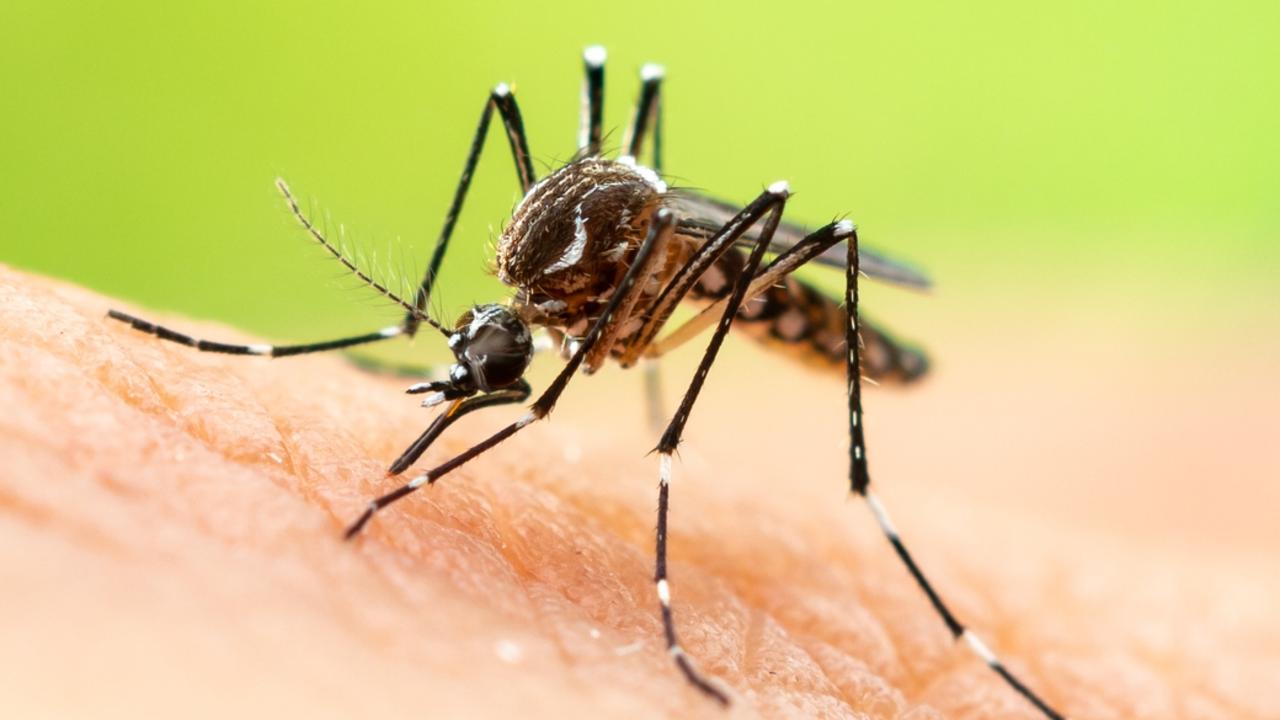The deadly mosquito-borne virus called Japanese encephalitis is sweeping across Australia, and the youngest person to get it is an infant.
A mosquito-borne virus that has swept across Australia, infected multiple people and claimed the life of two men could be here to stay, experts say.
On Sunday Victorian health authorities confirmed one of the seven confirmed cases in the state is an infant.
There was no information on the baby’s condition. The other six infected Victorians are adults, officials said.
Japanese encephalitis has also been detected in NSW, Queensland, and South Australia but authorities do not know how it arrived here.
The virus is endemic in much of Asia and parts of the Pacific, although the risk to human lives is very low.
On Friday, Health Minister Greg Hunt announced a $69m funding boost to combat the virus.
“We have 15,000 vaccines in the country and we are purchasing an extra 130,000 based on the public health advice,” he said.
“We also have a $5m information and awareness campaign (to promote) covering up, wearing repellent, doing all the things that people are used to doing to protect themselves when they’re in an area where there are mosquito borne diseases.
“There’s (also) $17.5m that’s been provided for surveillance and mosquito eradication and control in affected areas.
“With regards to the pigs and piggeries, there’s $10m to support the state health and environment and agriculture departments in their work with piggeries to assist with control.”
Here is everything you need to know about the virus.
What are the symptoms?
Less than one per cent of people infected with JEV will experience symptoms.
Some people experience a fever and headache, while those with a severe infection may experience neck stiffness, disorientation, tremors, coma and seizures.
Permanent neurological complications and death are also possible in severe cases.
Symptoms usually develop five to 15 days after being bitten by the Culex species of mosquitoes.
How is it spread?
The virus spreads when mosquitoes bite an infected animal then bite a human, with pigs and some water birds the most likely animals to infect mosquitoes.
Humans cannot pass the virus to each other and cannot become infected by touching an animal or eating animal products.
How is it diagnosed and treated?
Infection is usually diagnosed from measuring levels of antibodies to the virus in samples of blood or spinal fluid.
There is no specific treatment available.
How is it prevented?
The main thing you can do is avoid mosquito bites.
Mosquitoes that transmit the virus are most active at dawn, dusk and into the evening.
People should wear light, loose-fitting, long-sleeved shirts, long pants and covered footwear and socks to reduce their skin exposure.
Repellent should also be applied to all areas of exposed skin.
People should also use over-the-counter insecticide sprays when mosquitoes are inside a room.
All water holding containers around the home where mosquitoes could breed should also be reduced.
What about vaccination?
A vaccine is available for people aged two months and older.
